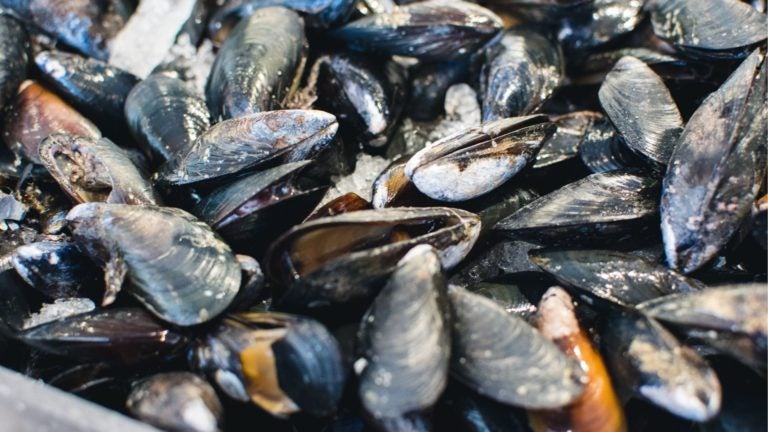
INQUIRER.net stock images
MANILA, Philippines — Red tide levels are still high in coastal waters in some areas in Visayas and Mindanao the Bureau of Fisheries and Aquatic Resources (BFAR) announced.
On Friday, the agency added Pontevedra, Capiz, to the list after coastal waters there tested positive for Paralytic Shellfish Poison (PSP).
The agency’s advisory also noted that shellfish from some coastal areas have tested negative for the red tide toxin, but several locations remain affected.
READ: Red tide alert up in Madridejos; Consumers, fisherfolk warned
Areas still contaminated with PSP include:
Sapian Bay, Capiz
Coastal waters of Roxas City, Capiz
Coastal waters of Gigantes Islands, Carles, Iloilo
Coastal waters of Dauis and Tagbilaran City, Bohol
Dumanquillas Bay, Zamboanga del Sur
Lianga Bay, Surigao del Sur
Coastal waters of San Benito, Surigao del Norte
BFAR warned, “All types of shellfish and Acetes, or alamang, from the areas listed above, are NOT SAFE for human consumption.”
According to the bureau’s website, consuming shellfish contaminated with red tide can lead to gastrointestinal and neurological illnesses.
The public is advised against harvesting, selling, buying, or consuming shellfish and acetes from these areas due to the danters associated with the red tide toxin.
However, BFAR clarified that fish, squids, shrimps, and crabs are safe to eat if fresh and thoroughly washed, with internal organs like gills and intestines removed before cooking.
In a follow-up to their previous advisory, BFAR reported that the coastal waters of President Roxas and Pilar, both in Capiz, are now clear of the red tide toxins.
Symptoms when one consumes shellfish infected with the red tide include headaches, dizziness, and nausea, among others. In severe cases, BFAR said muscular paralysis and difficulty in breathing may occur within five to 12 hours. Red tide happens when there is an overgrowth of algae, which causes the color of the water to turn red, green or brown.
RELATED STORY:
Enforce existing fishing laws, no need for new ones, says BFAR official